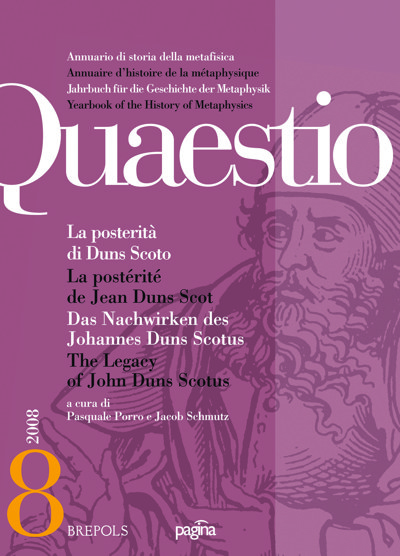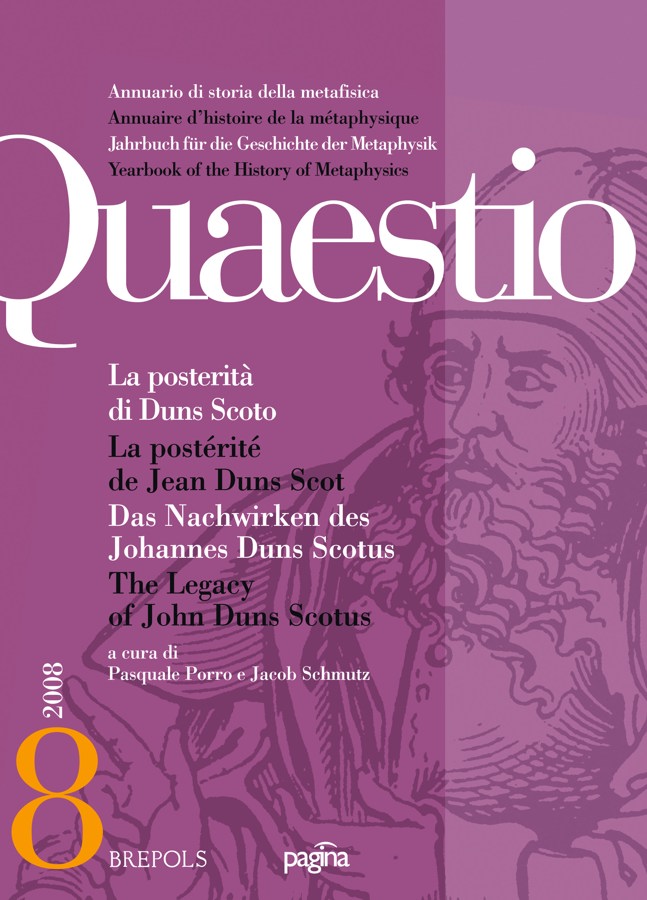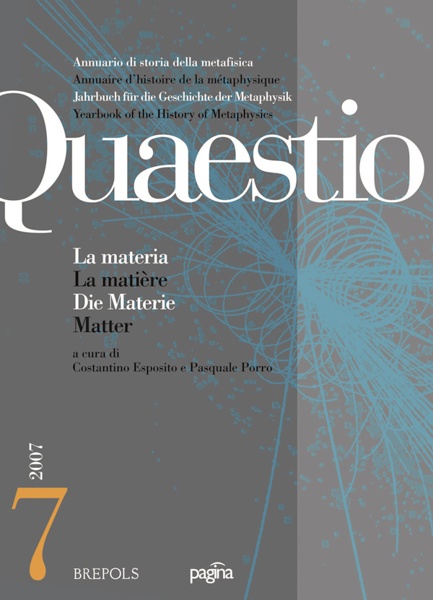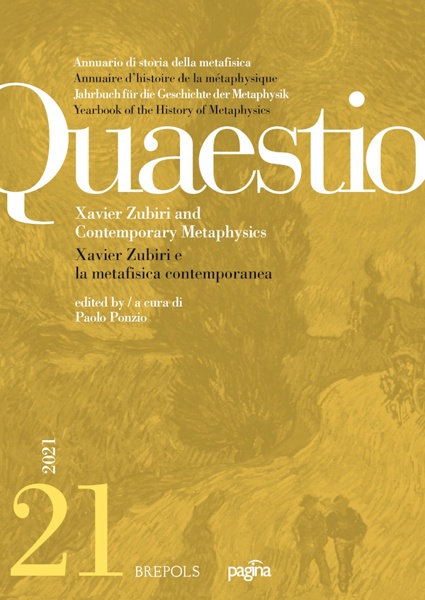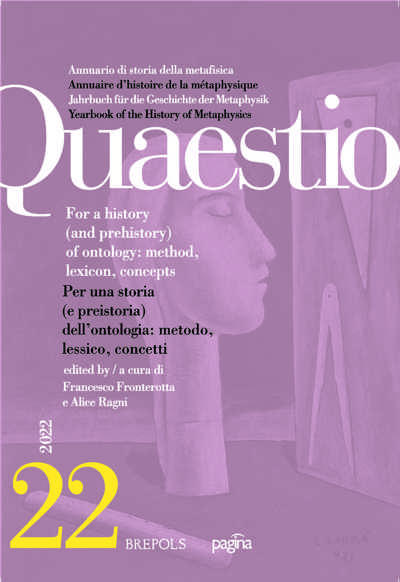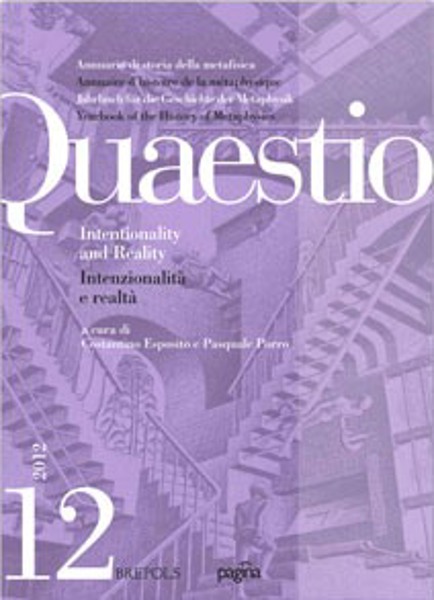
QUAESTIO 8 (2008)
The legacy of John Duns Scotus
- Pages: 741 p.
- Size:170 x 240 mm
- Language(s):English, French, German
- Publication Year:2009
- € 80,00 EXCL. VAT RETAIL PRICE
- ISBN: 978-2-503-51982-1
- Paperback
- Available
- E-journal
- Available
Mark. G. Henninger, Henry of Harclay and Duns Scotus - Guy Guldentops, God’s Unchangeability and the Changeability of Creatures from Bonaventure to Durandus. Scotus in Context - Tobias Hoffmann, Walter Chatton on the Connection of Virtues - Guido Alliney, Utrum necesse sit voluntatem frui. Note sul volontarismo francescano inglese del primo Trecento - Wouter Goris, After Scotus – Dispersions of Metaphysics, of the Scope of Intelligibility, and of the Transcendental in the Early 14th Century - Isabelle Mandrella, La controverse sur l’univocation de l’étant et le surtranscendantal. La métaphysique de Nicolas Bonet - Mauro Zonta, Elementi per la storia di uno « scotismo ebraico » - Marco Forlivesi, « Quae in hac quaestione tradit Doctor videntur humanum ingenium superare ». Scotus, Andrés, Bonet, Zerbi, and Trombetta Facing the Nature of Metaphysics - Anne Davenport, Probabilism and Scotism at the Stuart Court - Lukáš Novák, The (Non-)Reception of Scotus’s Proof of God’s Existence by the Baroque Scotists - Igor Agostini, La tradizione scotista e la dottrina della positività dell’infinito - Jakob Schmutz, Le scotisme au XVIIe siècle - Daniel D. Novotny, Forty-Two Years after Suárez: Mastri and Belluto’s Development of the « Classical » Theory of Entia Rationis - Henrik Wels, Antonius Roccus – « parum versatus in Scotica doctrina » - Frédéric Manzini, Spinoza en scotiste. Étude de quelques questions communes à Duns Scot et Spinoza - Stefano Di Bella, Il fantasma dell’ecceità. Leibniz, Scoto e il principio d’individuazione - Giovanni Maddalena, Un estremista dello scotismo: Charles S. Peirce - Olivier Boulnois, La philosophie analytique et la métaphysique selon Duns Scot - Mario De Caro, Temi scotistici nel dibattito contemporaneo sul libero arbitrio
